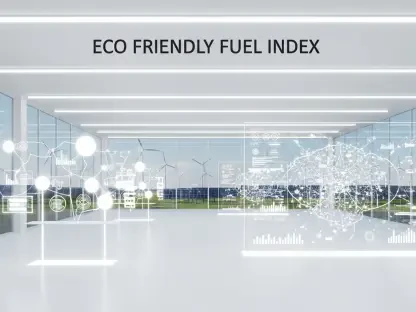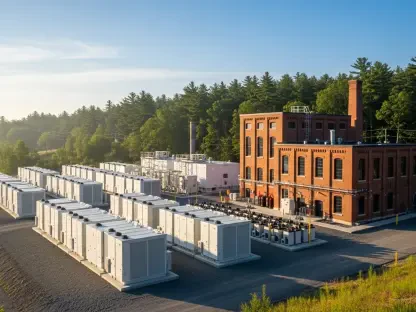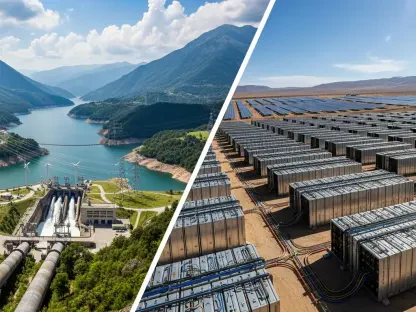In a striking clash over the future of clean energy in America, a coalition of advocacy groups and nonprofits has launched a legal battle against the Environmental Protection Agency (EPA) following the abrupt cancellation of the $7 billion Solar for All program. This initiative, originally designed to bring solar power to over 900,000 low-income households, was a cornerstone of a larger $27 billion Greenhouse Gas Reduction Fund established by a landmark climate law. The decision to terminate the program under the current administration has sparked intense debate about the balance between environmental progress and economic priorities. With allegations that the EPA overstepped its legal authority, the lawsuit underscores a growing tension between renewable energy advocates and a policy agenda favoring fossil fuels. This controversy not only affects vulnerable communities but also raises critical questions about the fate of climate initiatives in a rapidly shifting regulatory landscape.
Legal Challenges and Policy Conflicts
Examining the Basis of the Lawsuit
The core of the legal challenge against the EPA revolves around the assertion that the agency lacked the authority to cancel the Solar for All program after funds had already been awarded. Filed by a diverse group including the Rhode Island AFL-CIO, the Rhode Island Center for Justice, Solar United Neighbors, and the Conservation Law Foundation, the lawsuit seeks a federal court order to reinstate the program. The plaintiffs argue that the termination undermines a critical effort to provide affordable, clean energy to disadvantaged communities, projecting annual savings of about $400 on electricity bills for recipients. Beyond financial relief, the initiative was poised to cut over 30 million metric tons of carbon dioxide equivalent in emissions, a significant step toward combating climate change. The legal argument hinges on the interpretation of a recent tax and spending law, which the plaintiffs claim only revoked unawarded climate grants, leaving already allocated funds like those for Solar for All untouched.
Broader Implications of the Rollback
Beyond the specifics of this case, the cancellation of Solar for All represents a flashpoint in a larger struggle over environmental policy. Critics of the administration’s decision, such as Patrick Crowley of the Rhode Island AFL-CIO, highlight the loss of job opportunities that the program promised to create in the renewable energy sector. Additionally, the rollback is seen as a blow to vulnerable populations who stand to face higher energy costs without access to subsidized solar power. Kate Sinding Daly of the Conservation Law Foundation has framed the move as a deliberate prioritization of fossil fuel interests over the health and economic well-being of low-income families. This legal battle, therefore, is not just about reinstating a single program but about challenging a pattern of deregulation that threatens to dismantle years of progress in clean energy access. The outcome of this lawsuit could set a precedent for how far federal agencies can go in reversing climate commitments under political pressure.
Environmental and Economic Stakes
Impact on Communities and Climate Goals
The termination of the Solar for All program carries profound consequences for both environmental sustainability and social equity. Designed to serve over 900,000 low-income households, the initiative was a lifeline for many who struggle with high energy costs, offering a pathway to cleaner, more affordable power. Its cancellation jeopardizes these benefits and undermines national efforts to reduce greenhouse gas emissions at a time when climate action is more urgent than ever. The projected reduction of over 30 million metric tons of carbon dioxide equivalent highlights the program’s role in addressing air quality and global warming. Without this support, communities already burdened by economic hardship face an added layer of environmental injustice, as they are often the most exposed to pollution from fossil fuel sources. This situation amplifies the stakes of the lawsuit, as advocates push for reinstatement to protect both the planet and the most vulnerable populations.
Contextualizing a Pattern of Deregulation
Looking at the broader landscape, the Solar for All cancellation is just one piece of a sweeping rollback of environmental protections under the current administration. Alongside this program, an additional $20 billion in green funding for community development banks and nonprofits has been axed, as well as $7.6 billion in grants for climate-friendly projects across 16 states. Other actions include interference with offshore wind projects and attempts to weaken foundational climate regulations, such as the endangerment finding that underpins emission controls. EPA Administrator Lee Zeldin has defended these cuts by labeling the programs as wasteful and lacking statutory backing, particularly citing recent legislative changes. However, this stance starkly contrasts with the views of advocacy groups, who see these moves as a systematic effort to favor traditional energy sectors like oil, natural gas, and coal over sustainable alternatives, raising alarms about long-term economic and ecological damage.
Reflecting on a Path Forward
Lessons from a Policy Battle
Looking back, the legal challenge against the EPA over the Solar for All program cancellation revealed a deep divide between clean energy advocates and a deregulatory agenda. The lawsuit, driven by a coalition of concerned organizations, exposed the profound impact of terminating a $7 billion initiative that promised both environmental and economic benefits. It became clear that the loss of projected savings and emissions reductions had hit low-income communities hardest, while also stalling progress on climate goals. The administration’s broader rollback of green funding, from community grants to climate projects, painted a picture of a policy landscape prioritizing fossil fuels over renewables. This case stood as a testament to the fragility of environmental initiatives in the face of shifting political winds, highlighting the need for stronger legal safeguards to protect allocated funds from abrupt cancellation.
Building Resilience for Future Initiatives
Moving forward, the resolution of this legal dispute could offer valuable insights for safeguarding clean energy programs against future rollbacks. Stakeholders must consider advocating for legislative clarity to ensure that allocated funds are insulated from political changes, preventing similar disputes down the line. Additionally, fostering public-private partnerships could provide alternative funding mechanisms to sustain initiatives like Solar for All, even amidst federal policy shifts. Engaging communities directly in the design and implementation of such programs might also build grassroots support, making them harder to dismantle. As the battle over environmental policy continues, the emphasis should be on creating resilient frameworks that prioritize long-term sustainability and equity. This approach not only addresses immediate challenges but also sets a foundation for enduring progress in the fight against climate change, ensuring that the benefits of clean energy reach those who need them most.









